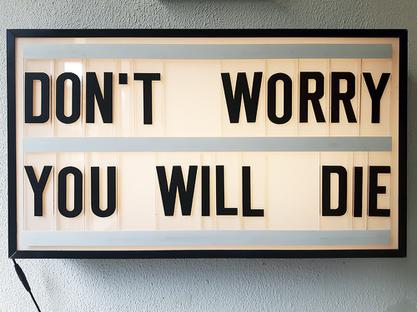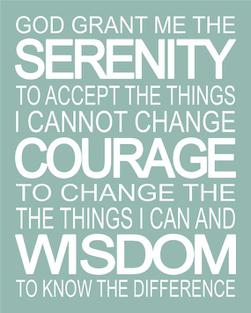Colliers Wood Death Cafe - ONLINE
A write up of April meeting of Colliers Wood Death Cafe - ONLINE
By Cecilia H

14 of us came together for our second virtual meeting of the Colliers Wood Death Café. We again had an international attendance and were joined by people calling from around the UK, Ireland, and the US.
A few people made their debut at a Death Café, and several regulars from the physical CWDC meetings also joined the Zoom call.
At the beginning of our meeting we acknowledged the impact Covid-19 is having on us as individuals, and as a global community, and how much more proximate death and dying feel to be amidst the current pandemic.
Themes to emerge from our discussion:
Our impermanence being powerfully highlighted by Coronavirus; living with this awareness that feels to have shifted and become more forefront for many people. Asking ourselves the questions about who and what it is that really matters to us, what it is that we value, and what it is that we want from our lifetime (however long we may have).
Our own sense of vulnerability in the face of the virus – and, in some cases, being told that we are part of a ‘high risk’ population. What it’s like to be confronted with our mortality in this way, and how we have sought comfort and support in the wake of this newly beheld reality.
Someone shared their story of a near death experience that happened when they were 22, and came out of a 3 day irreversible coma without any of the life limiting consequences that had been guaranteed.
Parallels between the Covid-19 pandemic and the AIDS crisis in the 80s in terms of the physical barriers, and the high levels of fear around contact and contagion. The number of people who will, as they did then, either die alone or separated from their family.
Another attendee shared their experience of having had symptoms of Covid-19, and what their journey had entailed, requiring them to dig deep ‘spiritually’.
Someone spoke about death related anxiety, and panic attacks they had experienced in childhood, their parents’ responses to this, and their recollection that very little discussion about death and dying took place whilst they were growing up.
We talked about the experience of spending time with someone shortly before they died, and how helpful this might be for many anticipating losing someone they love. We acknowledged the current circumstances and limitations that many families have been contending with during the outbreak of Covid-19, as often it is not possible for families to be physically proximate to their dying loved ones.
How helpful people have found “If you worry you die, if you don’t worry you’ll still die”, and the so-called ‘Serenity Prayer’.
Society’s general discomfort with anything related to grief or loss, and apparent terror of tears. The resulting aversive reactions; grief being very much less than welcome, and at times it seeming intolerable or unbearable - with people going out of their way to avoid talking to someone who is mourning. This experience not being restricted to deaths – extending to losses of all sorts, including redundancy, and the end of a relationship.
We reflected on how it feels that we are having to find new (or at least different) ways to ‘do death’ in the Covid-19 era. Someone shared their experience of attending a cremation recently, and how the family went about making a simple and small funeral personal and meaningful.
Re-claiming rituals at a time of crisis, to honour and celebrate the lives of those whose funerals we may not be able to attend. The sheer physicality of an Irish funeral – with repetitive ritualistic elements that hammer home the fact of a death, laying the dying to rest, whilst awakening the grief of those who are left behind.
The sense safety of laying someone to rest, and the comfort derived from returning someone to the place in which they grew up.
Someone described an experience of euphoria at the deathbed of a loved one shortly after they died; this feeling to be related to an energetic shift, something vital becoming accessible in the moments after the dying person took their final breath.
I will post future meeting dates on the Facebook page and deathcafe.com website shortly.
With many thanks to all who took part.
Resources shared during our meeting:
How to Go on Living When Someone You Love Dies, by Therese A. Rando PhD.
Dying To Be Me: My Journey from Cancer, to Near Death, to True Healing, by Anita Moorjani (https://anitamoorjani.com/)
Anita’s TED Talk: Dying to be me! https://www.youtube.com/watch?v=rhcJNJbRJ6U&feature=youtu.be
Journey of Souls: Case Studies of Life Between Lives, by Michael Newton PhD
https://www.newtoninstitute.org/books/
The Tibetan Book of Living and Dying, by the Tibetan monk Sogyal Rinpoche
The evolution of the Irish funeral ritual:
https://www.rte.ie/brainstorm/2020/0415/1130559-ireland-funerals-wakes-death-rituals-coronavirus/
The work of Dr. Bruce Greyson, (Professor Emeritus in Psychiatry at the University of Virginia) into consciousness, near-death experiences, post-mortem survival etc.
Is Consciousness Produced by the Brain?, by Bruce Greyson: https://www.youtube.com/watch?v=sPGZSC8odIU&t=779s
The Serenity Prayer, attributed to Reinhold Niebur
“Grant me the Serenity, to accept the things I cannot change;
the Courage, to change the things I can
and the Wisdom, to know the difference.”
Comments
Thank you, Cecilia, for the summary of your meeting. I missed this one but would like to join future online Death Cafes. I am based in Sri Lanka and am keen to start a Death Cafe here...it will be the first!
Best wishes
Sukanya Wignaraja
www.sukanyaw.com
Posted by SukanyaW



